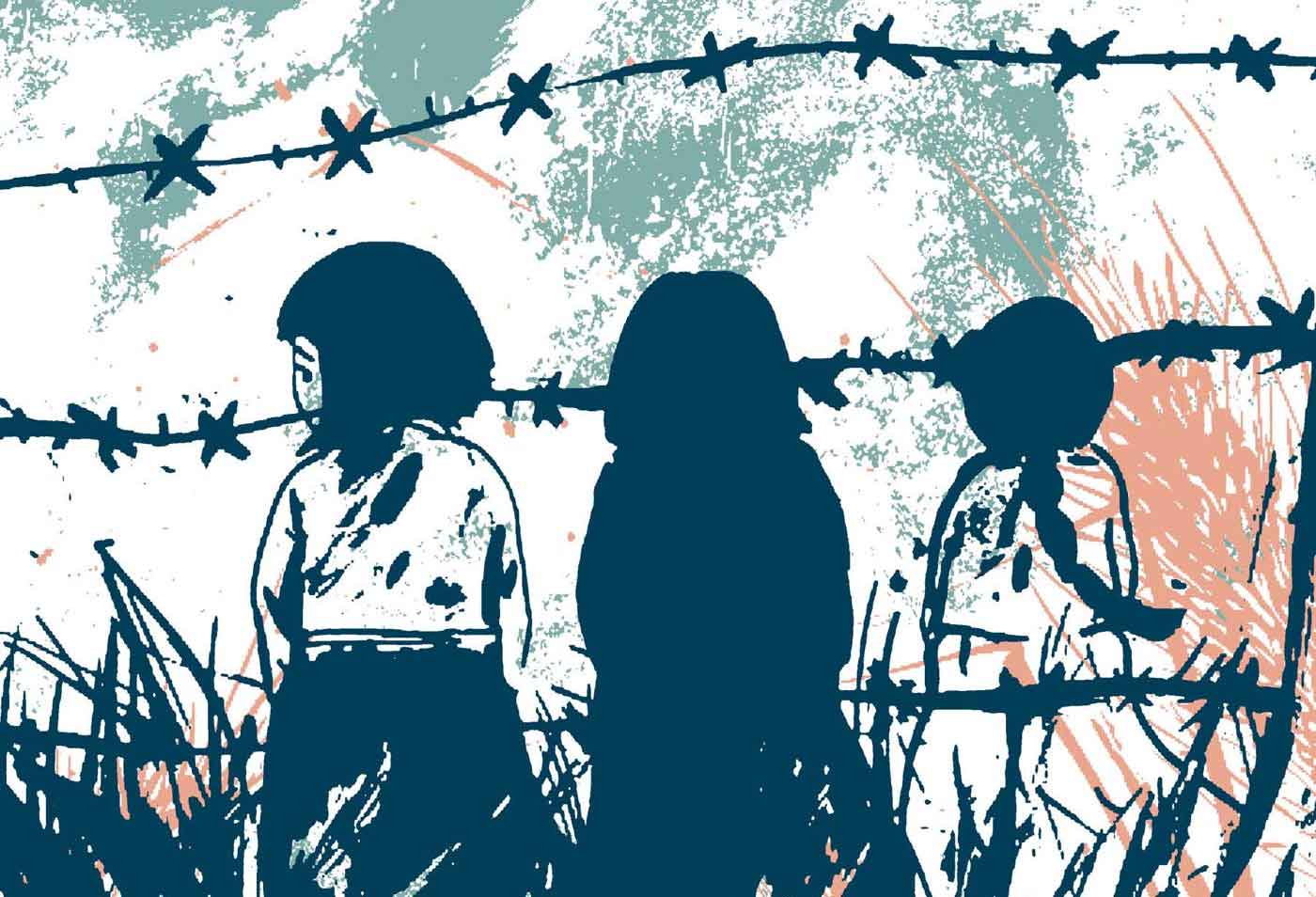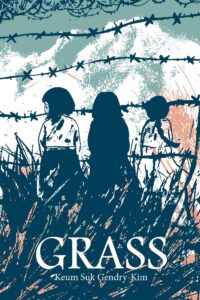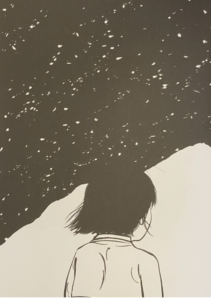Trigger Warning: This graphic novel depicts and describes instances of sexual violence.
Grass, illustrated by Keum Suk Gendry-Kim and translated by Janet Hong, is a harrowing graphic novel that narrates the stories of comfort women during World War II. [1] Specifically, Keum chronicles the story of Granny Lee Ok-Sun’s experience as a young child growing up during Japanese occupation and her eventual capture into sexual slavery at comfort stations.
Prior to the start of the Second World War, Granny Lee Ok-Sun recalls the hardships of living in Korea. During this time, her family were living off of meager food supplies and had no stable source of income, which left her parents unable to provide for their children. One day, her family decided to put her up for adoption to lessen their economic burden and in hopes that she would have more opportunities with another family. While Granny Lee Ok-Sun saw this as an opportunity to finally receive an education (a dream she had been yearning for), she did not realize the magnitude of what being adopted into another family meant. When she was given a new family, instead of receiving an education, the new family had lied to her and forced her to tirelessly work at their shop. After being tirelessly disobedient to her adoptive family, Granny Lee Ok-Sun was taken to a tavern to perform labor for the owners. She worked as a maid until the day she was abducted while walking back to the tavern.
Granny Lee Ok-Sun was put into a truck with other kidnapped girls her age where she later arrived at the East Yanji airport and moved into a comfort station. At the station, Granny Lee Ok-Sun recalls how the Japanese couple in charge attempted to give all the girls Japanese names in place of their Korean one. [2] One day after working, Granny Lee Ok-Sun painfully tells the tale of the first time a group of soldiers barged into their station. She details the shame and the painful experience she and others had to endure at these comfort stations. Moreover, Granny Lee Ok-Sun’s story reveals the various levels of violence that these women had to suffer through such as issues with venereal disease, unexpected pregnancies, beatings, and more.
Even as the war ended and Korea was officially “liberated,” Granny Lee Ok-Sun’s experience along with other comfort women proves contrary that liberation was for everyone. This narrative of liberation firstly ignores that many Koreans forcibly living in Japan had died as a direct result of the United States’ decision to use atomic weapons. Moreover, since they were Korean, they were unable to receive treatment for radiation. Additionally, this utilitarian framing of the allied powers “winning the war” ignores how many marginalized groups, comfort women in this case, were abandoned and left for dead.
Grass accomplishes the very difficult task of illustrating violence without sensationalizing or spectacularizing comfort women’s pain. While one may not picture a graphic novel as the ideal medium to relay tales of trauma, a picture truly speaks a thousand words.
To this day, there is still a lack of accountability from Japan about the crimes they committed during World War II. Granny Lee Ok-Sun along with other protestors continued to condemn Japan at public demonstrations in front of the Japanese embassy in Seoul. Their stories will not, and should not, be ignored.
As Keum Suk Gendry-Kim eloquently puts it, “the ground that had been slumbering wakes, and the young grass pokes out from between the dead withered leaves. Grass springs up again, though knocked down by the wind, trampled and crushed under foot. Maybe it will brush against your legs and whisper a shy greeting. The winter is over, and the cold that seemed to last forever is thawing. Spring has finally come.”
[1] The writers want to note that while they decide to use the phrase “comfort women,” they acknowledge that this phrase fails to capture the lived experiences of the women who experienced sexual slavery and violence.
[2] This incident is emblematic of the larger phenomenon of the Japanese campaign during the Second World War to erase Korean culture and language.
____________________________________________________________________________________
Hannah Ku is an intern at the 1882 Foundation. She is a master’s student studying Asian American history, public history methodology, and critical adoption studies at the University of Massachusetts, Amherst. She graduated from the University of Pittsburgh with a BA in History, a minor in Chinese, and a certificate in East Asian Studies.




